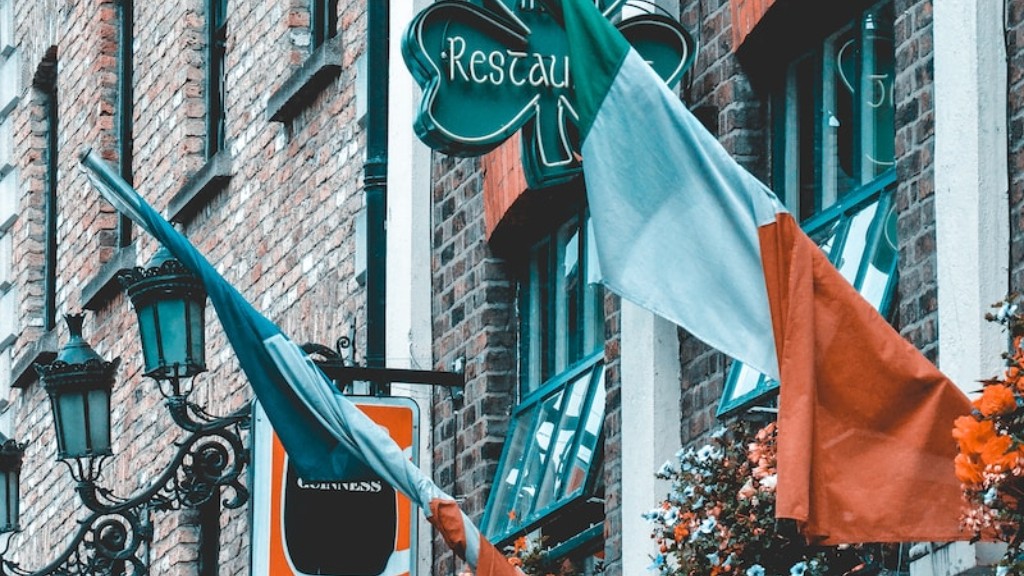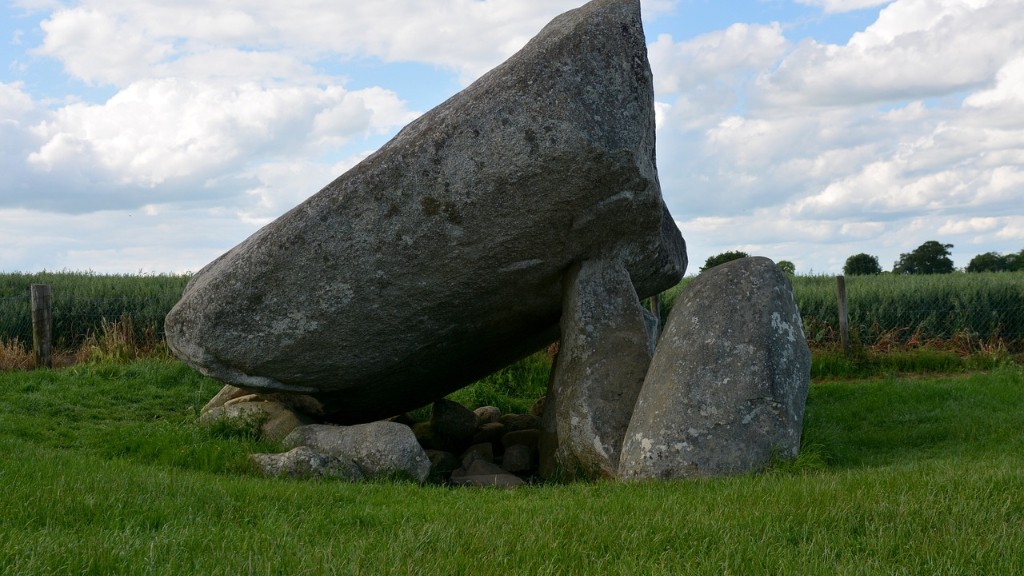Are Derry and Londonderry the same places in Northern Ireland? Understanding the significance of each area is key to discovering the answer to this long-standing question.
Northern Ireland is divided into two counties, namely County Londonderry and County Derry. The City of Derry is located in County Derry, and the City of Londonderry is located in County Londonderry. Despite having slightly different names, both cities are the focus of the same region, referred to as Derry/Londonderry. This region is divided into two distinct languages, namely English and Irish. While Derry is the preferred choice among Irish speakers, Londonderry is the preferred term used by English speakers.
The origin of the dual-named location can be traced back to ancient Gaelic rulership. In Gaelic literature and spoken language, the place was known as ‘Daired’ or ‘Doire’, meaning ‘oak grove’. When the British arrived in Northern Ireland in the late 1500s, they altered the name to ‘Londonderry’ as a symbol of their rule. This name stuck and is now widely used by British natives and other English-speaking people. As a result, Derry and Londonderry became the two recognised names for the same area.
The differing terms has caused confusion and has been the source of heated debate in Northern Ireland. For nationalists, Derry has become a symbol of their independent culture while unionists associate Londonderry with British rule. While it is difficult to determine when both terms ceased to have opposing political connotations, it is possible to conclude that today both terms are used interchangeably depending on the background of the person speaking.
Experts remain divided on how to refer to the contested region. According to Irish journalist and broadcaster, Declan Arthurs, “You can call it either one. It’s just what you prefer.” However, Dr. Barry McLaughlin, a historian and former Dean of Arts at Queen’s University Belfast, has a different opinion. He states that the two terms should not be used interchangeably. “If Derry is the accepted name in Irish, Londonderry is the accepted name in English”.
Although both terms are used differently in Northern Ireland, the official title for the region is Derry/Londonderry. It is used as both a symbolic recognition of the existing conflict and a sign of hope for unity. This also reflects Northern Ireland’s power-sharing agreement and shows respect for both parties involved. It has been agreed that the area should be referred to by both terms interchangeably in a sign of mutual understanding and respect.
Economic Impact of Derry/Londonderry
The dual-named location has brought about a number of economic advantages to the region. This includes increased tourism, improved infrastructure, and better job opportunities. It has also been identified as one of the most prominent business and industrial hubs in Northern Ireland.
The University of Ulster has established its ‘Research Institute for Retail in the City of Derry/Londonderry’, which is committed to studying the latest trends and insights in the retail industry. This institute has been instrumental in creating more employment opportunities in the area. It has also encouraged local businesses to diversify their operations to facilitate the growth of Derry/Londonderry’s local economy.
In addition to this, the region has seen a rapid growth in new companies and entrepreneurs, leading to increased investment and employment. An example of this is the Derry/Londonderry Business Park, which was established in 2017 and now houses more than 100 companies. This has helped to create additional jobs and encourage new forms of economic activity in the area.
Furthermore, the University of Ulster’s world-renowned ‘Centre for Cross Border Studies’ has further strengthened the region’s economic potential. The centre focuses on developing new policies and initiatives to bridge the gap between Northern Ireland and the Republic of Ireland. This has led to more trade and investment being made in the area.
Historical Significance of Derry/Londonderry
The dual-named region has longstanding historical significance in Northern Ireland. It was the site of a 1689 battle between the supporters of William III of England and the supporters of James II of England, otherwise known as the Battle of the Boyne. The city was also the location of a series of anti-Catholic riots in the 1920s known as the ‘Belfast Pogroms’. The riots resulted in the death of several people and the displacement of thousands from their homes.
In the 1960s, Derry/Londonderry experienced a period of civil unrest stemming from religious and political tensions. This culminated in the 1972 ‘Bloody Sunday’ massacre where fourteen civil rights protesters were killed. The massacre is widely remembered in the city and is seen as a symbol of the ongoing struggle for justice and civil rights within Northern Ireland.
The dual-named region is also a focal point of ‘The Troubles’. The Troubles is the name given to the three-decade long conflict in Northern Ireland that occurred between 1969 and 1998. The struggle between nationalists, who advocated for a united Ireland, and unionists, who sought to remain part of the United Kingdom, created much suffering and violence.
Derry/Londonderry has also seen much peaceful protest during ‘The Troubles’. For example, in 1968 the Derry Civil Rights Association held a demonstration. This peaceful protest was met with violent police aggression, something that is now seen as a landmark moment in Northern Ireland’s struggle for equality and civil rights.
Mental Health Impact of Derry/Londonderry
As a result of the dual-named area’s troubled past, many individuals living in Derry/Londonderry struggle with mental health issues due to the trauma and violence they have experienced or witnessed. As such, there are a number of organisations in the city that provide support to those affected.
One such organisation is Foyle Women’s Aid, which provides a range of mental health services. The organisation offers counselling and emotional support to victims and survivors of domestic and emotional abuse, as well as those suffering from post-traumatic stress disorder due to past experiences. They also provide youth support services and operate a helpline for anyone in need of crisis support.
In addition, the ‘Imagine Project’ has been set up in Derry/Londonderry to offer counselling services and support to those affected by ‘The Troubles’. The project has been successful in improving the lives of those affected by creating positive coping strategies and providing psychological support.
The mental health impacts of ‘The Troubles’ are still felt in Derry/Londonderry today. It is therefore important that those affected receive the necessary mental health support and that organisations such as Foyle Women’s Aid and the ‘Imagine Project’ are supported.
Cultural Significance of Derry/Londonderry
The city of Derry/Londonderry is of significant cultural importance. The city was inscribed on the UNESCO Intangible Cultural Heritage Lists in 2016 due to its rich heritage and culture. This recognition was a result of the city’s diverse cultural activity, including its annual festivals, cultural tours, and other cultural events.
The annual ‘Whirley Week’ festival is one of the most renowned events in Derry/Londonderry, attracting thousands of visitors to the city every year. The festival celebrates the city’s religious and cultural heritage and includes theatre performances and street art. It is a great way for communities to come together and to share in the city’s history and culture.
The city’s vibrant culture is also reflected in its growing music scene. A number of local acts have achieved national success, such as the rock band ‘The Undertones’ and the percussionist Stomptown Brass. The city is also home to the band ‘Brawd’ which has a unique blend of Irish and Scottish folk genres. These cultural events and music scenes highlight the importance of arts and culture in Derry/Londonderry.
In conclusion, Derry and Londonderry are in fact the same places in Northern Ireland. The dual-named city has a rich history and is a symbol of the power-sharing agreement and respect between the two sides. As a result of its historical significance and unique cultural offerings, the city is now a thriving cultural hub and economic powerhouse.
Education System in Derry/Londonderry
One of the most defining elements of Derry/Londonderry is its vibrant education system. The city is home to three universities, a number of further education colleges, and a variety of primary and secondary schools. This ensures the city is well-equipped to meet the educational needs of its population.
The University of Ulster is the largest and most prestigious higher education centre in the region. It offers a range of academic courses and has more than 18,000 students enrolled, making it one of the largest universities in the United Kingdom. The university has a number of faculties, including Business, Law, Engineering, and Arts and Humanities.
The city also caters to those looking to further their education at a more local level. St.Mary’s College, located on the banks of the River Foyle, is the oldest Catholic secondary school in Derry/Londonderry. The school offers a range of subjects and extracurricular activities in its specialised music, science and art departments.
Foyle College is another highly-regarded educational institution in the city, offering a variety of courses ranging from degree to postgraduate level. The college also provides further education courses and vocational qualifications, creating an opportunity for long-term employment and social well-being.
In addition to higher education, the region also benefits from a number of specialised primary and secondary schools, independent schools, as well as alternative education providers. This provides the people of Derry/Londonderry with an array of educational opportunities and the chance to pursue a range of academic disciplines.
Community Projects in Derry/Londonderry
In recent years, a number of community projects have been set up in Derry/Londonderry, with the aim of helping to improve the lives of those from deprived backgrounds. One such project is the ‘Community Medicine Programme’, which has been running since 2007 and is funded by a charity called ‘Food for Life’.
The programme provides free medical care to those in need in the local area, as well as medical training and support for local healthcare workers. The aim of the programme is to equip local people with the skills they need to care for those in their community who may not have access to adequate medical care.
Another community project is the ‘Derry Healthy Cities’ initiative, which was set up in 2004 by Derry City Council and the World Health Organisation. The aim of the initiative is to create a healthier and more sustainable city by developing and promoting approaches which can be used to improve access to healthcare and to reduce health inequalities.
The city of Derry/Londonderry also hosts a number of street sports projects, designed to encourage participation in physical activities for young people. The projects offer a unique platform for children and teenagers to engage in positive activities such as basketball, skateboarding, and BMXing.
The city of Derry/Londonderry has a wide range of community initiatives and projects aimed at tackling a range of social issues and helping to improve the lives of those in the local area





